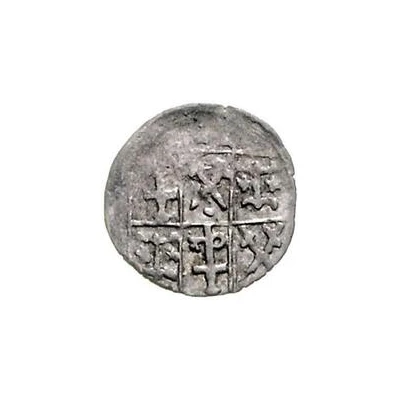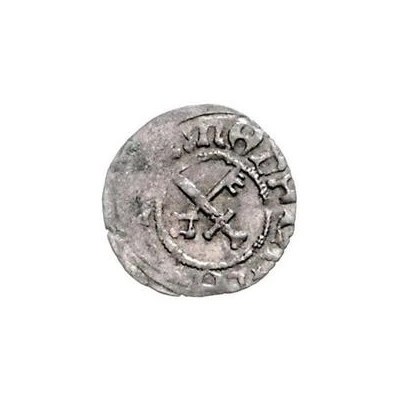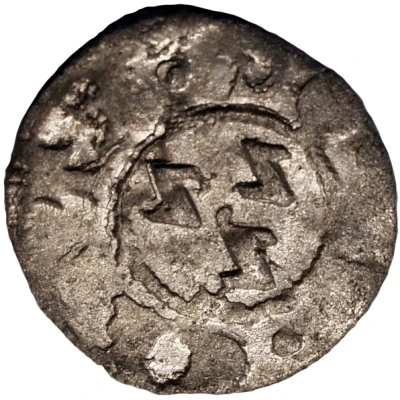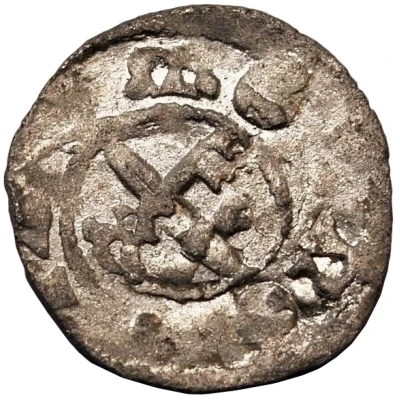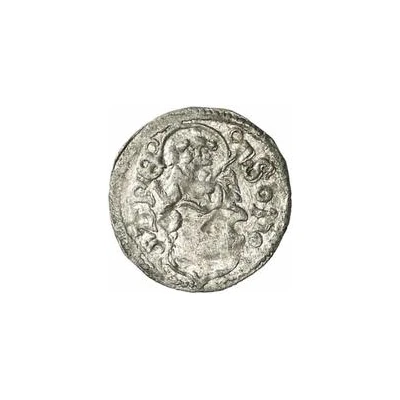
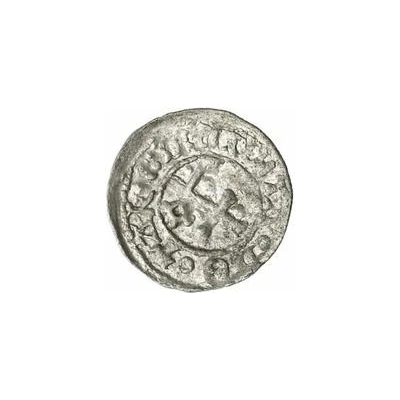

© Fritz Rudolf Künker GmbH & Co. KG, Osnabrück und Lübke + Wiedemann KG, Leonberg
1 Pfennig - Sede Vacante ND
1528 year| Billon | 0.38 g | 13 mm |
| Issuer | Bishopric of Dorpat (Livonian Confederation) |
|---|---|
| Period | Sede vacante (1528) |
| Type | Standard circulation coin |
| Year | 1528 |
| Value | 1 Pfennig = ⅓ Schilling |
| Currency | Schilling (1422-1558) |
| Composition | Billon |
| Weight | 0.38 g |
| Diameter | 13 mm |
| Thickness | 0.5 mm |
| Shape | Round (irregular) |
| Technique | Hammered |
| Orientation | Variable alignment ↺ |
| Demonetized | Yes |
| Updated | 2024-10-06 |
| Numista | N#142112 |
|---|---|
| Rarity index | 100% |
Reverse
Crossed sword and key surrounded by legend.
Script: Latin (uncial)
Lettering: mONETA · nO · TAR ·
Lettering (regular font): MONETA · NO · TAR ·
Unabridged legend: Moneta Nova Darpatensis
Translation: New coin of Dorpat
Edge
Plain
Interesting fact
One interesting fact about the 1 Pfennig - Sede Vacante ND (1528) coin from the Bishopric of Dorpat (Livonian Confederation) is that it was made of Billon, a type of alloy that is composed of a mixture of metals, typically copper, silver, and tin. The use of Billon in coinage was common in Europe during the medieval period, as it was a more affordable alternative to pure silver or gold coins. Despite its relatively low value, the 1 Pfennig coin still holds historical significance as a representation of the economic and political systems of the time.
